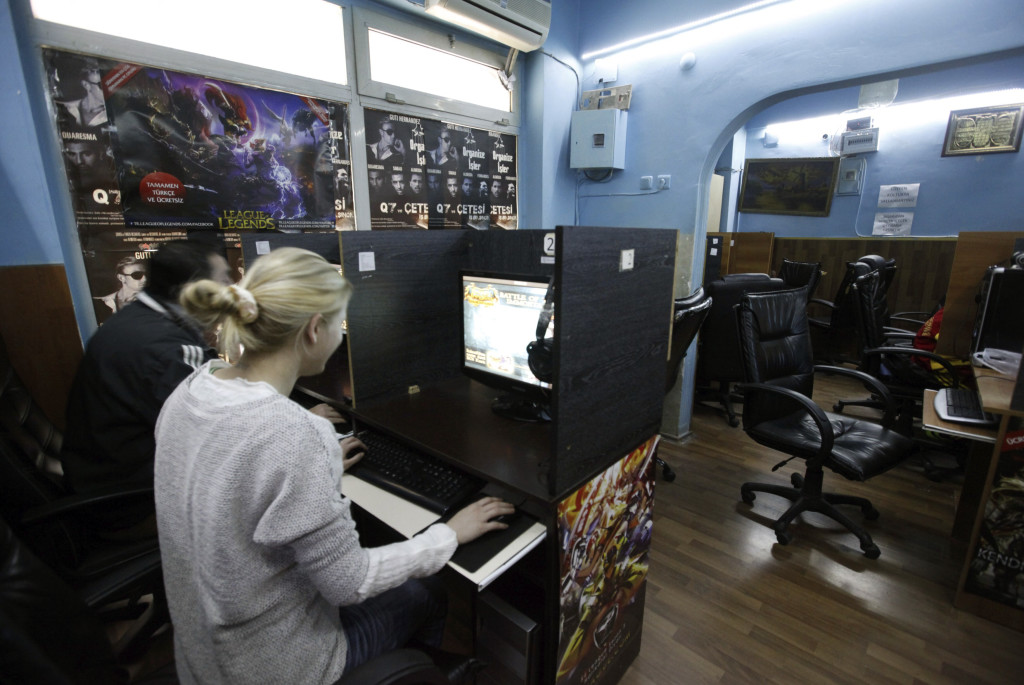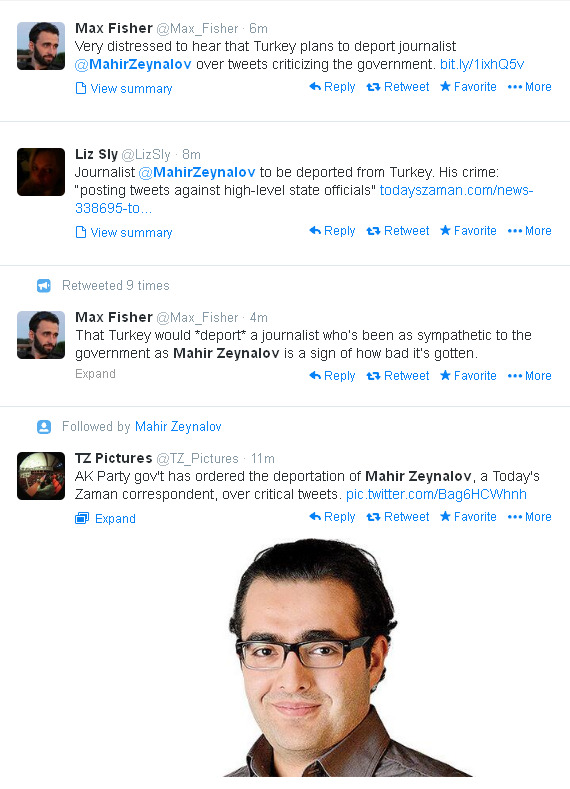
People spend time surfing the internet in a cafe in Istanbul February 6, 2014. Turkey’s parliament has approved internet controls enabling web pages to be blocked within hours in what the opposition decried as part of a government bid to stifle a corruption scandal with methods more suited to “times of coups”. Social media and video sharing sites have been awash with alleged recordings of ministers including Prime Minister Tayyip Erdogan and business allies presented as proof of wrongdoing. Reuters has been unable to verify their authenticity. REUTERS/Osman Orsal
Turkey this week took a step toward stifling critics and limiting free speech. Parliament passed a new law Wednesday which, if signed by President Abdullah Gül, will allow communication authorities to block access to internet sites within four hours–even without a court order. The legislation will require web hosts to store all internet browsing histories for up to two years–and if they are asked to provide authorities with that information, they will have to do so without a court order and without the user in question knowing anything about it.
The opposition is furious with AKP Prime Minister Recep Tayyip Erdogan. Deutsche Welle online quotes opposition lawmaker Hasan Oren as complaining to Erdogan: “When you came to power you talked of enhancing democracy in Turkey, now you are trying to implement fascism.”
Now, the big question is whether the president will sign or veto the law.
“A telling factor as to where Turkey goes ahead politically is the signal that Gül will give concerning his decision whether or not to endorse the recently passed internet bill,” Thomas Sorlie, a research analyst and consultant focusing on Turkish politics, told RePRESSed.
“If he signs it into law, it will be ‘a tip of the hat’ to the Erdoğan-led AKP. If he stalls or does not sign it into law, it could possibly signal a rupture within the AKP that would not be repairable,” Sorlie said.
Gül and Erdogan founded the AKP together in 2001 and, says the Wall Street Journal, they are expected to reach a power-sharing agreement before the presidential election this summer. It’s expected that Erdogan will run for president and Gül, who can’t run for another term, will be named prime minister.
The European Union has also expressed concern over the new internet law. London’s Financial Times quotes European Parliament president Martin Schulz, who tweeted that the Turkish parliament’s approval of the bill was a “step back in an already suffocating environment for media freedom”.
The Times also quotes European Commission spokesman Peter Stano, who says the law needs to be revised “in line with European standards.”
Sorlie says there has been a lot of speculation about Turkey joining the European Union lately, in light of the political crisis it is undergoing.
“The concern for both Turkey and the EU should not at this point in history be focused on this political process; instead the domestic political stability within Turkey should be at the forefront. If there is a risk that Turkey could become destabilized enough it could see Syria’s conflict enter into its own borders, then this should be the central theme discussed between the EU and Turkey,” Sorlie said.
In separate news that speaks to a growing repressive media climate in Turkey, Today’s Zaman reports the government has ordered the deportation of one of the publication’s own correspondents, Mahir Zeynalov, over tweets that criticize the government.



3 responses to “Turkey: Tightening Up on Free Speech”
Good article
Yikes-with that name, we must be cousins!
[…] Source:VOA //blogs.voanews.com/repressed/2014/02/06/turkey-tightening-up-on-free-speech/?from=lister […]